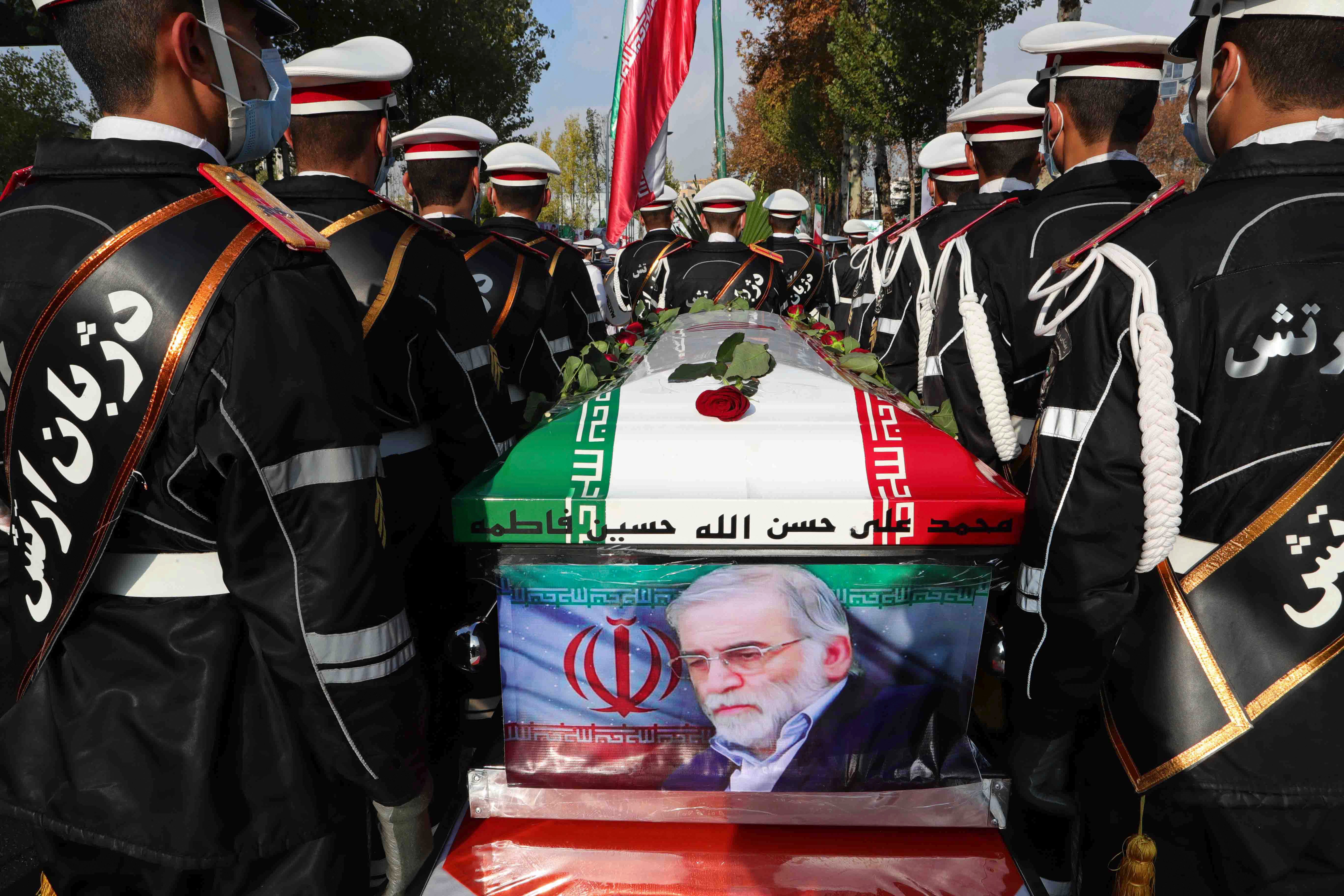Israel killed nuclear scientist to start war, claims Iran president
Accusation comes as reports emerge of widespread alleged Iranian cyberattack against Israel

Your support helps us to tell the story
From reproductive rights to climate change to Big Tech, The Independent is on the ground when the story is developing. Whether it's investigating the financials of Elon Musk's pro-Trump PAC or producing our latest documentary, 'The A Word', which shines a light on the American women fighting for reproductive rights, we know how important it is to parse out the facts from the messaging.
At such a critical moment in US history, we need reporters on the ground. Your donation allows us to keep sending journalists to speak to both sides of the story.
The Independent is trusted by Americans across the entire political spectrum. And unlike many other quality news outlets, we choose not to lock Americans out of our reporting and analysis with paywalls. We believe quality journalism should be available to everyone, paid for by those who can afford it.
Your support makes all the difference.Iran’s president for the first time on Monday bluntly accused Israel of being behind the killing last month of nuclear scientist Mohsen Fakhrizadeh. The accusation came a day after reports that Israel had suffered a major cyber attack at hands of alleged Iranian hackers.
Iranian President Hassan Rouhani, speaking to journalists at a press conference, said Israel killed Fakhrizadeh in a bid to provoke armed conflict in the final weeks of the administration of American Donald Trump. But he insisted Iran would refrain from a military attack and respond to the killing at a time and place of its choosing.
“Waging instability and war in the final days of the Trump administration was the main aim of the Zionist regime in the assassination,” said Mr Rouhani said, employing phrase often used by Iranian officials to describe the state of Israel, which it does not recognise.
Prodded by Israel and its political allies in Washington, the Trump administration scrapped a 2015 nuclear deal forged with Iran by his predecessor Barack Obama and launched a campaign of “maximum pressure” against the country in an attempt to secure what was described as a better deal.
But the plan failed. Iran has upped its nuclear programme and refused to join Mr Trump at the bargaining table. President-elect Joe Biden has promised to rejoin the nuclear deal if Iran returns to the terms of the agreement, which limit its output of nuclear fissile material.
Fakhrizadeh, born in 1958, allegedly oversaw Iran’s clandestine nuclear weapons programme until it was halted in 2003 and continued to manage aspects of Iran’s nuclear research and missile development. He was shot dead on 27 November under still murky circumstances in the town of Absard, in a mountain resort area east of the capital, Tehran.
Other Iranian officials had previously blamed Israel for the assassination; unnnamed officials have told US news outlets that Israel was behind the killing of the scientist.
Iranian officials claim they have made arrests in the killing of Fakhrizadeh but have provided no details about those who were purportedly detained.
The assasination has prompted worries of an Iranian retaliation which could lead to an escalation of the ongoing shadow war being waged between Iran and Israel and their allies.
Israel has repeatedly struck targets described as pro-Iranian militias or armed groups in Syria. Last weekend, the US flew two nuclear-capable B-52H bombers near Iranian airspace in what was seen as a warning to the Islamic Republic.
Recently, dozens of Israeli firms, including ones potentially involved in the distribution of coronavirus vaccines, were among the victims of cyberattacks, which led to leaks of information from dozens of firms in the logistics and supply sectors, according to cybersecurity firms and Israeli media.
Despite the stolen data, there have been no ransom demands, leading to speculation that a malicious state actor may have been behind the hacks.
“The companies that were attacked are among Israel's biggest in the logistics sector and such an attack has the potential of severely disrupting the supply of basic commodities to the country,” said a report by the Israeli tech publication CTech. “The stolen information may also be of strategic value to enemy states.”



Join our commenting forum
Join thought-provoking conversations, follow other Independent readers and see their replies
0Comments